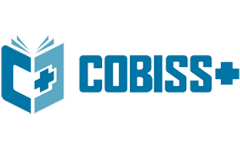Critical Elements of Emotional Quotients (EQ) During and After Crisis among Malay Women Food Operators in Klang Valley
DOI:
https://doi.org/10.61841/p1sake16Keywords:
Emotional Quotients (EQ), Self-awareness, Self-regulation, Self-motivation, Empathy, Social Skills, Women EntrepreneurAbstract
This paper highlighted the elements of emotional quotients among female or female food operators in Klang Valley, Malaysia, during and after the economic crisis. Emotional quotients are divided into five elements, which are self-awareness, self-regulation, self-motivation, empathy, and social skills. About 100 questionnaires were distributed around Kampung Baru, Sentul, Keramat, Wangsa Maju, and Ulu Kelang in Klang Valley, Malaysia. The data were collected in October 2017. Most women food operators agreed that during the economic crisis the most important elements of emotional quotients are social skills, self-regulation, self-motivation, self-awareness, and empathy. However, after the economic crisis, most women entrepreneurs agreed that the most important elements are self-motivation, self-awareness, social skills, self-regulation, and empathy. Hence, from the study, we can conclude that in order to survive during an economic crisis, women entrepreneurs should be focusing more on their social skills, which are getting cooperation from employees, having a special unit to communicate with employees, the ability to communicate with employees, the ability to inspire employees, and the ability to evaluate the abilities of employees. However, after the economic crisis, they will be focusing more on being self-motivated, which includes the ability to control operation costs, to keep employee interest, to stay positive, to ensure business operations run smoothly, and to keep a positive culture in the business.
Downloads
References
[1] __________Economic Census 2016, Profiles of SMEs, SMECorp Website (Accessed: August 8, 2018).
[2] Ahmad, S., Bangash, H., & Khan, S. A. (2009). Emotional intelligence and gender differences. Sarhad J. Agric, 25(1), 127-130.
[3] Altındağ, E., & Kösedağı, Y. (2015). The relationship between emotional intelligence of managers, innovative corporate culture, and employee performance. Procedia-Social and Behavioral Sciences, 210, 270-282.
[4] Alonso Almeida, M. d. M., & Bremser, K. (2014), Strategic Management Decisions in Power Positions to Achieve Business Excellence in Small Service Businesses: Does Gender Matter? (December 1, 2014). European Accounting and Management Review, 1(1), 1-25.
[5] Anbugeetha, D. (2018). Fostering Women Empowerment through Entrepreneurship. PARIPEX-Indian Journal of Research, 6(4), 460-43.
[6] Baron, R. A., Mueller, B. A., & Wolfe, M. T. (2016). Self-efficacy and entrepreneurs' adoption of unattainable goals: The restraining effects of self-control. Journal of Business Venturing, 31(1), 55-71.
[7] Belás, J., Bilan, Y., Demjan, V., & Sipko, J. (2015). Entrepreneurship in the SME segment: case study from the Czech Republic and Slovakia. Amfiteatru Economic Journal, 17(38), 308-326.
[8] Bhattarai, R. K. (2016). Empathic Actors Strengthen Organisational Immunity to Industrial Crisis: Industrial Actors’ Perception in Nepal. Outlines. Critical Practice Studies, 17(1), 109-128.
[9] Caldwell, C. & Hayes, L. A. (2016). Self-efficacy and self-awareness: moral insights to increased leader effectiveness. Journal of Management Development, 35(9), 1163-1173.
[10] Cesaroni, F. M., Sentuti, A., & Buratti, A. (2015). Same crisis, different strategies? Italian men and women entrepreneurs in front of the economic recession. Journal of Research in Gender Studies, 5(2), 205-231.
[11] De Beaufort, V. & Summers, L. (2014). Women on boards: sharing a rigorous vision of the functioning of boards, demanding a new model of corporate governance. Journal of Research in Gender Studies, 4(1), 101.
[12] FakhrEldin, H. (2017). The relationship between the emotional intelligence of entrepreneurs and the creation of new ventures: the role of age, gender, and motive. Arab Economic and Business Journal, 12(2), 99-108.
[13] Gielnik, M. M., Spitzmuller, M., Schmitt, A., Klemann, D. K., & Frese, M. (2015). “I put in effort, therefore I am passionate”: Investigating the path from effort to passion in entrepreneurship. Academy of Management Journal, 58(4), 1012-1031.
[14] Humphrey, R. H. (2013). The benefits of emotional intelligence and empathy to entrepreneurship. Entrepreneurship Research Journal, 3(3), 287-294.
[15] Hussain, S., Awan, I., & Bajwa, R. S. (2016). A Comparative Study of Psychological Correlates of Entrepreneurs and Managers. Pakistan Journal of Social Sciences (PJSS), 36(1).
[16] Keller, E. (2018). Noisy business politics: lobbying strategies and business influence after the financial crises. Journal of European Public Policy, 25(3), 287-306.
[17] Kim, T., Yoo, J.J.-E., Lee, G., & Kim, J. (2012). Emotional intelligence and emotional labor acting strategies among frontline hotel employees. International Journal of Contemporary Hospitality Management, 24, 1029-1046.
[18] Khatoon, N. U. Z. H. A. T. H. (2013). The impact of emotional intelligence on the growth of entrepreneurship. International Journal of Business Management and Research, 3(3), 1-8.
[19] Lins, K. V., Servaes, H., & Tamayo, A. (2017). Social capital, trust, and firm performance: The value of corporate social responsibility during the financial crisis. The Journal of Finance, 72(4), 1785-1824.
[20] Lin, X. S., Chen, Z. X., Ashford, S. J., Lee, C., & Qian, J. (2018). A self-consistency motivation analysis of employee reactions to job insecurity: The roles of organization-based self-esteem and proactive personality. Journal of Business Research, 92, 168-178.
[21] Liopis, G.(2011). Skills that give women a sustainable advantage over men. Forbes. (4). URL: https://www.forbes.com/sites/glennllopis/2011/08/22/4-skills-that-give-women-a-sustainable-advantageover-men/#44ac1e667901. Access date: 19/11/2018.
[22] Lopes, P. N., Grewal, D., Kadis, J., Gall, M., & Salovey, P. (2006). Evidence that emotional intelligence is related to job performance and affect and attitudes at work. Psicothema, 18(Suplemento), 132-138.
[23] Markovits, Y., Boer, D., & van Dick, R. (2014). Economic crisis and the employee: The effects of economic crisis on employee job satisfaction, commitment, and self-regulation. European Management Journal, 32(3), 413-422.
[24] Mortan, R. A., Ripoll, P., Carvalho, C., & Bernal, M. C. (2014). Effects of emotional intelligence on entrepreneurial intention and self-efficacy. Revista de Psicología del Trabajo y de las Organizaciones, 30(3), 97-104.
[25] Naseer, Z., Chishti, S.-U.-H., Rahman, F., & Jumani, N.B. (2011). Impact of emotional intelligence on team performance in higher education institutes. Intenational Online Journal of Educational Sciences, 30-46.
[26] Piperopoulos, P. (2010). Tacit knowledge and emotional intelligence: the ‘intangible’ values of SMEs’. Strategic Change, 19, 125-139.
[27] Pungboonpanich, P. (2012) Effects of emotional quotient on job efficiency and operational success of tax auditors in Thailand, IJSM, 12 (2).
[28] Rey-Martí, A., Porcar, A. T., & Mas-Tur, A. (2015). Linking female entrepreneurs' motivation to business survival. Journal of Business Research, 68(4), 810-814.
[29] Sharif, M. Y. (2015). Glass ceiling, the prime driver of women entrepreneurship in Malaysia: a phenomenological study of women lawyers. Procedia-Social and Behavioral Sciences, 169, 329-336.
[30] Shuklaa, M. G. & Bhandari, S. (2014). Work Life Balance and Stress Management of Women Employees through Emotional Intelligence—With Reference to Teaching Faculties in Indore. Journal of Global Studies (JGS), 1(1), 107-117.
[31] Subramanian, K. R. (2016). Key to organizational effectiveness: social and emotional intelligence. International Research Journal of Advanced Engineering and Science, 1(4), 127-131.
[32] Surbhi, S. (2016) Difference between IQ and EQ, URL address: https://keydifferences.com/differencebetween-iq-and-eq.html, access date: 19/11/2018.
[33] Sultanova, V. A. & Chechina, S. O. (2016). Human capital as a key factor of economic growth in crisis. European Research Studies Journal, 19(2), 72-79.
[34] Tahir, H. M., Razak, N. A., & Rentah, F. (2018, March). The Contributions Of Small and Medium Enterprises (SME’s) On Malaysian Economic Growth: A Sectoral Analysis. In International Conference on Kansei Engineering & Emotion Research (pp. 704–711). Springer, Singapore.
[35] Tindle, E. (2014). Understanding empathy: its origins and measurement. Congruence: Official Newsletter of the College of Counseling Psychologists, Australian Psychological Society, 4-5.
[36] Wright, T. A. (2014). When Character and Entrepreneurship Meet: A View from the World of Sport. Journal of Business & Management, 20(1), 5-17.
Downloads
Published
Issue
Section
License
Copyright (c) 2020 AUTHOR

This work is licensed under a Creative Commons Attribution 4.0 International License.
You are free to:
- Share — copy and redistribute the material in any medium or format for any purpose, even commercially.
- Adapt — remix, transform, and build upon the material for any purpose, even commercially.
- The licensor cannot revoke these freedoms as long as you follow the license terms.
Under the following terms:
- Attribution — You must give appropriate credit , provide a link to the license, and indicate if changes were made . You may do so in any reasonable manner, but not in any way that suggests the licensor endorses you or your use.
- No additional restrictions — You may not apply legal terms or technological measures that legally restrict others from doing anything the license permits.
Notices:
You do not have to comply with the license for elements of the material in the public domain or where your use is permitted by an applicable exception or limitation .
No warranties are given. The license may not give you all of the permissions necessary for your intended use. For example, other rights such as publicity, privacy, or moral rights may limit how you use the material.
















